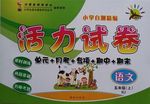
Behind our house is the start of a fascinating trail (小径). This trail is one of the old roads that wind through untold miles of forest. My 1 , Beans, and I walk the trail frequently. Normally, Beans sniffs alongside the trail to follow the smell of a deer track or 2 some cause known only to him.
Beans is a white dog, quite handsome and very 3 . He not only understands what we tell him, but also often makes sounds as if he were trying to 4 back.
One morning, we took a different route, which led us to an unfamiliar trail. I was sure this trail would eventually lead us to our familiar 5 . But, no. We seemed to be far off course. After two hours, I suddenly realized that Beans probably 6 the way home. So I urged, "Beans, take me home." He ran down a new trail. But it merely led to an intersection (岔道口) of trails.
Soon it became 7 that we were getting nowhere. I began to picture the rest of the day in the 8 , without food or drink. We had walked about ten miles. But Beans seemed totally 9 . The sniffing and exploring was going well for him.
Finally, we 10 a crossroad near a highway. Lady Luck suggested I should turn left. We did and 11 reached a cottage beside a field.I knocked on the door and explained my situation to an old man. He laughed and then drove us home.
Since our adventure, I 12 that Beans probably knew all along how to get home.
He was just having too much fan exploring new trails.
1. A.deer B.dog C.lady D.man
2. A.imagine B.consider C.explore D.present
3. A.smart B.sweet C.slow D.shy
4. A.turn B.kick C.jump D.speak
5. A.driveway B.path C.crossroad D.highway
6. A.knew B.saw C.showed D.made
7. A.mysterious B.ridiculous C.fascinating D.apparent
8. A.house B.forest C.field D.cottage
9. A.unconcerned B.unconscious C.undecided D.uncomfortable
10. A.left for B.went off C.came to D.drove toward
11. A.punctually B.frequently C.formally D.shortly
12. A.regretted B.remembered C.concluded D.confirmed
 激活思维优加课堂系列答案
激活思维优加课堂系列答案 活力试卷系列答案
活力试卷系列答案 课课优能力培优100分系列答案
课课优能力培优100分系列答案科目:高中英语 来源:山东省莘县实验高中2009-2010学年度高一下学期4月月考 题型:完型填空
第二节完形填空(共20小题,20分)
The sun was shining when I got on No. 151 bus. We passengers sat jammed in heavy clothes. No one 36 . That’s one of the unwritten rules 37 we see the same faces every day, we prefer to 38 behind our newspapers. People who sit so close together are using them to keep 39 distance.
As the bus came near the Mile, a 40 suddenly rang out, “Attention! This is your 41 speaking.” We looked at the back of the driver’s head. “Put your 42 down, all of you.” The papers came down. “Now, turn and 43 the person next to you.”
Surprisingly we all did it. Still no one smiled. I faced an old woman. I saw her 44 every day. We waited for the next 45 from the driver. “Now repeat after me. Good morning, neighbor!”
But our voices were a little 46 . For many of us, this was the 47 word we had spoken that day. When we said them together, like 48 to people beside us, we couldn’t help 49 . There was the feeling of relief. Moreover, there was the sense of ice being 50 . To say the three words was not so 51 after all.
The bus driver said nothing more. He didn’t 52 to. Not a single newspaper went back up. I heard laughter, a 53 sound I had never heard before in this bus.
When I 54 my stop, I said goodbye to my seatmate, and then 55 the bus. That day I was starting happily.
36. A. spoke B. said C. stood D. told
37. A. as B. because C. when D. although
38. A. read B. sit C. talk D. hide
39. A. ours B. your C. their D. its
40. A. call B. noise C. sound D. voice
41. A. conductor B. driver C. neighbor D. seatmate
42. A. papers B. bags C. books D. clothes
43. A. see B. meet C. face D. greet
44. A. still B. nearly C. even D. hardly
45. A. turn B. talk C. order D. remark
46. A. loud B. neat C. slow D. weak
47. A. first B. last C. best D. only
48. A. passengers B. citizens C. patients D. school children
49. A. shouting B. crying C. smiling D. wondering
50. A. formed B. heated C. broken D. frozen
51. A. sad B. hard C. ordinary D. shy
52. A. need B. want C. like D. begin
53. A. different B. warm C. loud D. happy
54. A. arrived B. reached C. left D. found
55. A. jumped off B. left for C. got on D. waited for
查看答案和解析>>
科目:高中英语 来源:2012-2013学年河南南乐县实验高级中学高二下期期中考试英语试卷(带解析) 题型:阅读理解
Decisions, decisions! Our lives are full of them, from the small ones to the life-changing. The right to choose is central to everyone. Yet sometimes we make bad decisions that leave us unhappy or full of regret. Can science help?
Most of us know little about the mental processes that lie behind our decisions. Luckily, what psychologists are finding may help us all make better choices. Here are some of their amazing discoveries to help you make up your mind.
Consider your emotions. You might think that emotions are the enemy of decision-making, but in fact they are a part of it. Whenever you make up your mind, your brain’s emotional centre is active. University of Southern California scientist, Antonio Damasia, has studied people with damage to only the emotional parts of their brains, and found that they were unable to make basic choices about what to wear or eat. Damasia thinks this may be because our brains store emotional memories of past choice, which we use to help the present decision-making.
However, making choices under the influence of an emotion can greatly affect the result. Take anger for example. A study by Nitika Garg of the University of Mississippi and other scientists found the angry shoppers were more likely to choose the first thing they were offered rather than considering other choices. It seems that anger can lead us to make quick decisions without much thinking.
All emotions affect our thinking and motivation,so it may be best to avoid making important decisions under their influence. Yet strangely there is one emotion that seems to help us make good choices. The American researchers found that sad people took time to consider the various choices on offer, and ended up making the best choices. In fact many studies show that people who feel unhappy have the most reasonable view of the world.
【小题1】What does the underlined word “central” mean?
| A.in the middle | B.easy to reach | C.important | D.having power |
| A.emotions are the enemy of decision-making. |
| B.our brain has nothing to do with decision-making. |
| C.people with physical damage find it hard to make up their minds. |
| D.our emotional memories of past choices can affect present decisions. |
| A.To think about happy times. | B.To make many decisions at a time. |
| C.To stop feeling regretful about the past. | D.To learn about the process of decision-making. |
| A.They often forget their past choices. | B.They make decisions without much thinking. |
| C.They tend to save time when shopping. | D.They are too angry to bargain. |
| A.Emotions are a part of decision-making. |
| B.Sad people always make worse choices. |
| C.No emotion seems to help us make good choices. |
| D.Only sad feelings affect our thinking and motivation. |
查看答案和解析>>
科目:高中英语 来源:2012-2013学年湖南省高三综合测试英语卷(解析版) 题型:完型填空
Directions: For each blank in the following passage there are four words or phrases marked A, B, C and D. Fill in each blank with the word or phrase that best fits the context.
Behind our house is the start of a fascinating trail (小径). This trail is one of the old roads that wind through untold miles of forest. My 36 , Beans, and I walk the trail frequently. Normally, Beans sniffs alongside the trail to follow the smell of a deer track or 37 some cause known only to him.
Beans is a white dog, quite handsome and very 38 . He not only understands what we tell him, but also often makes sounds as if he were trying to 39 back.
One morning, we took a different route, which led us to an unfamiliar trail. I was sure this trail would eventually lead us to our familiar 40 . But, no. We seemed to be far off course. After two hours, I suddenly realized that Beans probably 41 the way home. So I urged, "Beans, take me home." He ran down a new trail. But it merely led to an intersection (岔道口) of trails.
Soon it became 42 that we were getting nowhere. I began to picture the rest of the day in the 43 without food or drink. We had walked about ten miles. But Beans seemed totally 44 . The sniffing and exploring was going well for him.
Finally, we 45 a crossroad near a highway. Lady Luck suggested I should turn left. We did and 46 reached a cottage beside a field. I knocked on the door and explained my situation to an old man. He laughed and then drove us home.
Since our adventure, I 47 that Beans probably knew all along how to get home.
He was just having too much fan exploring new trails.
1.A. deer B. dog C. lady D. man
2.A. imagine B. consider C. explore D. present
3.A. smart B. sweet C. slow D. shy
4.A. turn B. kick C. jump D. speak
5.A. driveway B. path C. crossroad D. highway
6.A. knew B. saw C. showed D. made
7.A.mysterious B. ridiculous C. fascinating D. apparent
8.A. house B. forest C. field D. cottage
9.A. unconcerned B. unconscious C. undecided D. uncomfortable
10.A. left for B. went off C. came to D. drove toward
11.A. punctually B. frequently C. formally D. shortly
12.A. regretted B. remembered C. concluded D. confirmed
查看答案和解析>>
科目:高中英语 来源:2014届浙江宁波万里国际学校高二下期期中考试英语卷(解析版) 题型:阅读理解
Decisions, decisions! Our lives are full of them, from the small ones to the life-changing. The right to choose is central to everyone. Yet sometimes we make bad decisions that leave us unhappy or full of regret. Can science help?
Most of us know little about the mental processes that lie behind our decisions. Luckily, what psychologists(心理学家)are finding may help us all make better choices. Here are some of their amazing discoveries to help you make up your mind.
Consider your emotions. You might think that emotions are the enemy of decision making, but in fact they're a part of it. Whenever you make up your mind, your brain’s emotional center is active. University of Southern California scientist, Antonio Damasio, has studied people with damage to only the emotional parts of their brains, and found that they were unable to make basic choices about what to wear or eat. Damasio thinks this may be because our brains store emotional memories of past choices, which we use to help the present decision making.
However, making choices under the influence of an emotion can greatly affect the result. Take anger, for example. A study by Nitika Garg of the University of Mississippi and other scientists found the angry shoppers were more likely to choose the first thing they were offered rather than considering other choices. It seems anger can lead us to make quick decisions without much thinking.
All emotions affect our thinking and motivation(动机), so it may be best to avoid making important decisions under their influence. Yet strangely there’s one emotion that seems to help us make good choices. The American researchers found that sad people took time to consider the various choices on offer, and ended up making the best choices. In fact many studies show that people who feel unhappy have the most reasonable view of the world.
1.According to the text, what may help us make better decisions?
A.To think about happy times.
B.To make many decisions at a time.
C.To stop feeling regretful about the past.
D.To learn about the process of decision-making.
2.Damasio’s study suggests that _________.
A.emotions are the enemy of decision making
B.our brain has nothing to do with decision making
C.people with physical damage find it hard to make up their minds
D.our emotional memories of past choices can affect present decisions
3.Why are angry shoppers more likely to choose the first thing they are offered?
A.They often forget their past choices.
B.They make decisions without much thinking.
C.They tend to save time when shopping.
D.They are too angry to bargain.
4.What do we learn from the text?
A.Emotions are a part of decision making.
B.Sad people always make worst choices.
C.No emotion seems to help us make good choices.
D.Only sad feelings affect our thinking and motivation.
查看答案和解析>>
科目:高中英语 来源:河南省0910学年高二下学期期中考试(英语) 题型:阅读理解
No one could have failed to be moved had he watched the live televised volleyball game between the Chinese and Cuban women’s teams. As we sat before the television set, with our eyes fixed on the screen, we experienced every kind of feeling. When the two teams played neck and neck, we were on pins and needles, anxious as to what would come next, and when our team fell behind, our hearts were in our mouths. Watching the game between those two teams is not only a matter of great joy. For more than that it provides food for thought. Just see how the Chinese women won the game — by their cooperation, by their excellent skill, their effort and strong will. A Chinese saying goes, "When two competent opponents (比赛的双方) meet, the strong-minded one will win." This is the spirit of the Chinese Women’s Volleyball Team. If every Chinese showed some of the spirit, never losing heart in times of difficulty and remaining clear-minded in times of advantage, then our nation would stand in the vanguard (前列) of the world family of nations, just as the Chinese Women’s Volleyball Team has done, is doing and will do.
59. While watching the game, we _____.
A. had feelings of different kinds
B. enjoyed a friendly and wonderful game
 clapped
and cheered only for the Chinese Women’s Volleyball Team
clapped
and cheered only for the Chinese Women’s Volleyball Team
D. were eager to know what would happen later on
60. The wonderful game _____.
A. brought us great joy
B. provided us with food for our thoughts
 gave
us not only great joy but also food for thoughts
gave
us not only great joy but also food for thoughts
D. give us a valuable amusement
61. The author believed that _____.
A. the Chinese Women’s Volleyball Team was the strongest
B. China was sure to become stronger and stronger if only we have that spirit of the Chinese Women’s Volleyball Team
 the
Chinese must remain clear-minded in time of advantage
the
Chinese must remain clear-minded in time of advantage
D. the Chinese Women’s Volleyball Team would never be beaten.
62. The best title of the passage might be “_____”.
A. Watching a Close Volleyball Game
B. The Spirit of the Chinese Women’s Volleyball Team
 Learn
from the Members of the Volleyball Team
Learn
from the Members of the Volleyball Team
D. The Strong - Minded Are the Winners
查看答案和解析>>
湖北省互联网违法和不良信息举报平台 | 网上有害信息举报专区 | 电信诈骗举报专区 | 涉历史虚无主义有害信息举报专区 | 涉企侵权举报专区
违法和不良信息举报电话:027-86699610 举报邮箱:58377363@163.com